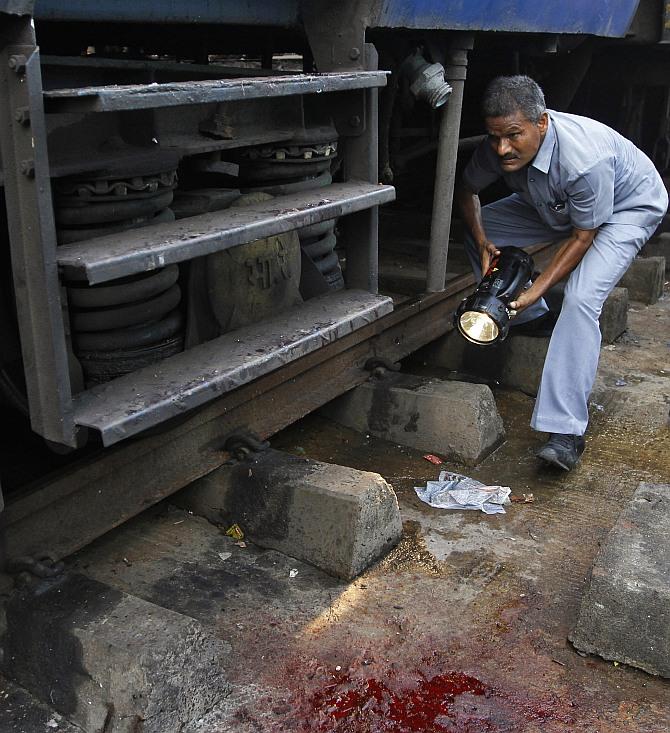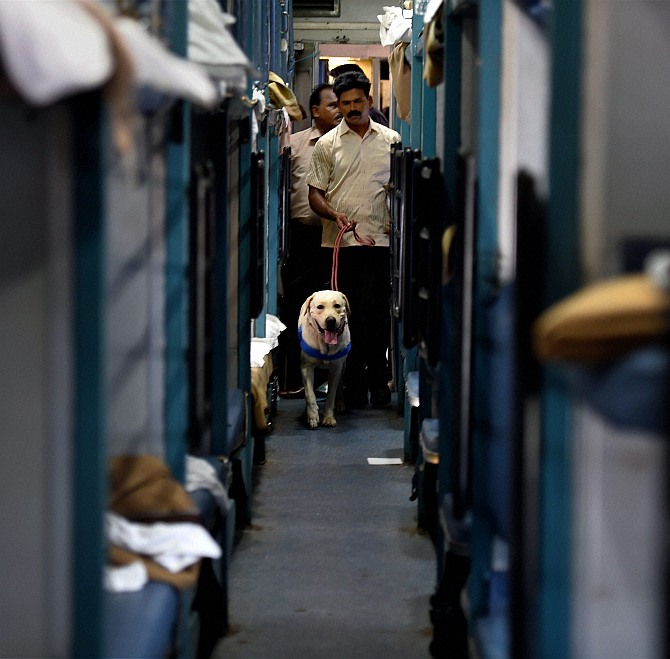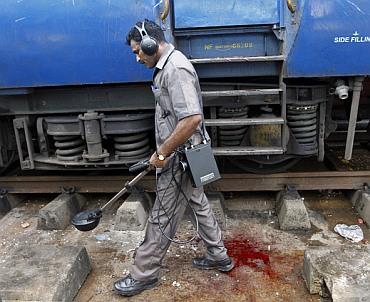
Vicky Nanjappa/Rediff.com tracks down the leads in the investigation into the terror attack at Chennai station.
Thursday's twin blasts in Chennai were not aimed at any politician, but carried out to create panic, and also to warn the security agencies of terror events to come, Intelligence Bureau agents told Rediff.com
The IB agents told Rediff.com that there was no way one could compare the Chennai attack to the blast at the Patna rally last October addressed by Narendra Modi, the Bharatiya Janata Party's prime ministerial nominee.
BJP leaders had claimed on Thursday that the Chennai attack was directed at Modi and demanded enhanced security for him. Modi was in Tirupati, about 140 km from Chennai, when the blasts occurred. The IB agents discounted the possibility that the attack targeted Modi.
Investigators say the bombs were planted in Chennai and the timer was set for a very short duration. Since a pipe bomb was used, it was not meant to cause large-scale destruction.
Kindly ...

Two passengers, who traveled without tickets, are under the scanner for the blasts on the Bangalore-Guwahati Kaziranga Express.
Passengers of the S4 and S5 coaches, in which the blasts occurred, told investigators that they saw two men board the train in Bangalore. These men reportedly slept on the floor.
Police sources say it is unlikely that the bomb was planted in Bangalore.
Fringe groups in Tamil Nadu have carried out such strikes in the past. Most of these attacks have had a political tinge to it, police sources told Rediff.com
The most recent attacks of this nature were reported in the Union territory of Puducherry, where a bomb was planted under Congress leader Narayanswamy's car, and in Madurai where a Reliance store was targeted.
Police say the bombs used in the three attacks had traces of ammonium nitrate, sulphur, ball bearings, a timer device and nitro toluene, indicating that it could be the handiwork of the same terror group.
A police officer told Rediff.com that Al-Ummah, the Tamil Nadu-based terror group, could be behind the Chennai attack. "We do not want to speculate, but we are very seriously looking into this angle," he said.
Kindly ...

There is also talk of non-State actors based out of Sri Lanka trying to target Tamil Nadu.
Zaheed Hussain, a resident of Kandy in Sri Lanka, who was arrested barely 48 hours before the Chennai blasts, has confessed that he reported to the Pakistan high commission in Colombo and was entrusted the role of planning a terror attack in the state.
Intelligence Bureau agents, who track Sri Lankan operations in Tamil Nadu, say Pakistan's Inter Services Intelligence directorate employs Sri Lankan Muslims to target South India.
Sri Lanka's eastern province has a large Tamil Muslim population, which has largely stayed away from radical ideology.
The ISI tried to woo members of the community for a decade, but had little success.
The ISI then deployed drugs, sourced from the Maldives, in the area. Young Muslims were also told about the Liberation Tigers of Tamil Eelam's attacks on the community, and told that the government and people of Tamil Nadu were soft on the LTTE.